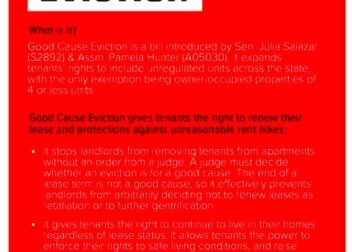Marin County Landlord Tenant Law You Should Know
Marin County landlord-tenant law is essential for ensuring that both parties—landlords and tenants—are treated fairly and have clear guidelines for their rights and obligations. Whether you are renting out a property or living in one, understanding the local regulations helps prevent disputes and confusion. Marin County has unique rules, and being familiar with these laws is key to avoiding legal complications. This post will guide you through the most important aspects of landlord and tenant laws in Marin County, offering clarity on various topics that may impact your rental experience.
Rights and Responsibilities of Landlords in Marin County
Landlords in Marin County have specific rights and responsibilities that they must uphold to create a smooth rental experience for both parties. These responsibilities are designed to protect tenants while also giving landlords the necessary tools to manage their properties effectively.
Some of the key responsibilities include:
- Maintaining the property: Landlords are required to ensure that the rental unit is habitable, meaning it must be safe, clean, and structurally sound.
- Providing basic utilities: Landlords must ensure tenants have access to water, electricity, and heating. These should be in working condition unless otherwise agreed upon.
- Making timely repairs: Landlords must address necessary repairs promptly, especially if they affect the safety or livability of the property.
Landlords also have the right to:
- Collect rent: Landlords are entitled to receive rent payments on time as outlined in the lease agreement.
- Inspect the property: With proper notice, landlords can inspect the rental unit to ensure it is being maintained according to the lease agreement.
- Evict tenants: In cases where tenants violate the terms of the lease, landlords have the right to initiate eviction proceedings under Marin County’s legal procedures.
Key Tenant Protections in Marin County
Tenants in Marin County are granted several protections to ensure they are treated fairly and have a safe living environment. Knowing these protections helps tenants feel secure in their rental agreements and prevents landlords from taking advantage of them.
Some important tenant protections include:
- Protection from unlawful eviction: Tenants cannot be evicted without proper cause and notice, and must go through a legal process for eviction.
- Right to habitable housing: Tenants have the right to live in a property that meets basic safety and health standards. If landlords fail to provide this, tenants may withhold rent or take other legal action.
- Rent control: Marin County has regulations regarding rent increases, particularly in cities like San Rafael. Landlords cannot increase rent beyond certain limits set by local law.
- Protection from discrimination: Fair housing laws protect tenants from being discriminated against based on race, gender, religion, disability, and other protected characteristics.
Tenants should be aware of these rights and take action if they believe their landlord is violating them. Having a clear understanding of your rights helps in avoiding disputes and ensuring a better rental experience.
Security Deposits and Rent Regulations
In Marin County, understanding the rules around security deposits and rent regulations is crucial for both landlords and tenants. These rules ensure that both parties know what to expect financially and help avoid conflicts over payments and refunds.
Security deposits:
- Landlords can request a security deposit at the start of the rental agreement. In California, this deposit cannot exceed two months’ rent for unfurnished units or three months’ rent for furnished units.
- The security deposit is meant to cover damages beyond normal wear and tear, unpaid rent, or any other breaches of the lease terms.
- When a tenant moves out, the landlord must return the deposit within 21 days, along with an itemized list of deductions (if any).
Rent regulations:
- Rent control laws may apply in some areas of Marin County, limiting how much and how often a landlord can increase rent. Cities like San Rafael have specific rent stabilization rules.
- Tenants must receive proper notice before any rent increase. For small increases (up to 10%), a 30-day notice is required. For larger increases, landlords must give a 60-day notice.
- Late fees and penalties should be clearly outlined in the lease agreement and must comply with California state law.
Understanding these regulations protects both landlords and tenants, ensuring that financial transactions remain transparent and fair throughout the tenancy.
Handling Repairs and Maintenance
Keeping a rental property in good condition is a shared responsibility between landlords and tenants. In Marin County, there are specific laws about who is responsible for repairs and how they should be handled.
Landlord responsibilities:
- Landlords must maintain the property in a habitable condition, which includes keeping plumbing, electrical, heating, and structural systems in working order.
- Any repairs affecting health and safety, such as fixing a broken heater or addressing pest infestations, must be handled promptly.
- If repairs are delayed, tenants have the right to make the repairs themselves and deduct the cost from the rent (up to a legal limit), known as “repair and deduct.”
Tenant responsibilities:
- Tenants are required to keep the rental unit clean and in good condition, avoiding damage to the property.
- Minor repairs or maintenance tasks, such as changing lightbulbs or unclogging sinks, are generally the tenant’s responsibility unless otherwise specified in the lease.
- If the tenant causes damage to the property, they are responsible for repairing or paying for the repairs.
Good communication between landlords and tenants can prevent misunderstandings and ensure repairs are completed efficiently, keeping the rental property safe and comfortable for everyone involved.
Eviction Procedures in Marin County
Evictions are a legal process that must be handled carefully to avoid violating tenants’ rights. Marin County follows California state law for eviction procedures, ensuring that landlords have valid reasons and follow the correct steps when seeking to remove a tenant from the property.
Valid reasons for eviction:
- Non-payment of rent
- Violation of lease terms
- Engaging in illegal activities on the property
- Refusing to vacate after the lease expires
Notice requirements:
- 3-day notice to pay rent or quit: Given when the tenant has failed to pay rent. The tenant has three days to either pay the rent or leave the property.
- 30-day or 60-day notice: Depending on the length of the tenancy, landlords must provide either a 30-day or 60-day notice if they wish to terminate the lease without cause.
- Unlawful detainer: If the tenant does not comply with the notice, the landlord must file an unlawful detainer lawsuit to begin the eviction process.
Evictions should always follow the legal process. Improper evictions, such as changing the locks or shutting off utilities, are illegal and can lead to serious consequences for landlords.
Resolving Disputes Between Landlords and Tenants
Disputes between landlords and tenants are common but don’t always need to escalate into legal battles. Many issues can be resolved through clear communication, understanding, and knowledge of Marin County’s landlord-tenant laws. Knowing how to handle these disputes effectively can save time, stress, and money for both parties.
Common disputes include:
- Disagreements over repairs and maintenance
- Issues with rent increases or late payments
- Concerns about the return of security deposits
- Allegations of lease violations or property damage
Steps to resolve disputes:
- Open communication: Often, the best way to resolve a conflict is to have an open and respectful conversation. Many disputes arise from misunderstandings that can be clarified through a simple discussion.
- Mediation services: If talking doesn’t resolve the issue, Marin County offers mediation services that can help both parties reach a mutually acceptable agreement without going to court.
- Document everything: Keeping records of rent payments, repair requests, and communications can help when disputes arise. This documentation is crucial if legal action becomes necessary.
- Legal action: If the dispute cannot be resolved through communication or mediation, either party may need to pursue legal remedies through small claims court or other legal proceedings.
By addressing issues early and using available resources, landlords and tenants can often avoid costly and time-consuming legal disputes.
Legal Resources for Landlords and Tenants in Marin County
Both landlords and tenants in Marin County have access to a range of legal resources designed to help them navigate rental issues, resolve disputes, and understand their rights. These resources provide valuable support when questions or conflicts arise.
Key legal resources include:
- Marin County Housing Authority: This agency offers information on tenant rights, rent control, and eviction procedures. It also provides assistance with housing-related issues.
- Legal Aid of Marin: Tenants facing eviction or other housing issues can seek free or low-cost legal services through Legal Aid of Marin.
- Small Claims Court: Both landlords and tenants can file claims for disputes under a certain dollar amount in Marin County’s Small Claims Court. This is a cost-effective way to resolve financial disagreements without needing a lawyer.
- Fair Housing Advocates of Northern California: This organization assists tenants who believe they are facing discrimination in housing. They provide legal support and education on fair housing laws.
Additional resources:
| Resource | Contact Information |
|---|---|
| Marin County Rent Control Information | www.marincounty.org |
| California Department of Consumer Affairs | www.dca.ca.gov |
These resources can provide essential guidance, whether you’re facing a legal dispute or simply need information on your rights as a landlord or tenant in Marin County.
Frequently Asked Questions
1. Can a landlord increase rent at any time in Marin County?
No, landlords must provide proper notice before increasing rent, and rent control laws may apply in certain areas. For small increases, a 30-day notice is required, while larger increases require a 60-day notice.
2. What can tenants do if a landlord fails to make necessary repairs?
If a landlord doesn’t address essential repairs, tenants can use the “repair and deduct” method, where they make the repair themselves and deduct the cost from the rent, up to a legal limit.
3. How can I legally evict a tenant in Marin County?
To evict a tenant, landlords must follow the legal process, which includes giving the appropriate notice (3-day, 30-day, or 60-day) and filing an unlawful detainer lawsuit if the tenant does not comply.
4. What is the maximum amount a landlord can charge for a security deposit?
In California, the security deposit cannot exceed two months’ rent for an unfurnished unit or three months’ rent for a furnished unit.
Conclusion
Understanding Marin County’s landlord-tenant laws helps both parties maintain a respectful and lawful rental relationship. By being aware of rights, responsibilities, and available legal resources, landlords and tenants can prevent common disputes and handle issues efficiently when they arise. Clear communication, proper documentation, and adherence to legal procedures create a stable and fair environment for everyone involved in the rental process. Whether it’s navigating rent regulations or resolving conflicts, staying informed ensures a smoother experience for both landlords and tenants in Marin County.


